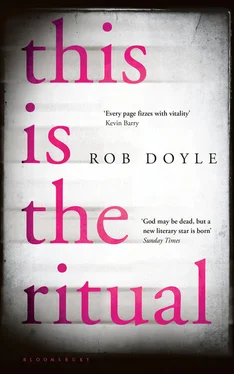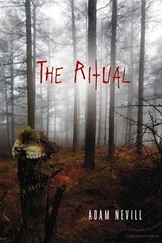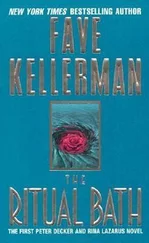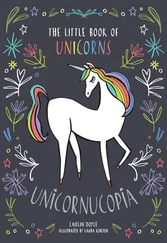Rob Doyle - This is the Ritual
Здесь есть возможность читать онлайн «Rob Doyle - This is the Ritual» весь текст электронной книги совершенно бесплатно (целиком полную версию без сокращений). В некоторых случаях можно слушать аудио, скачать через торрент в формате fb2 и присутствует краткое содержание. Год выпуска: 2016, Издательство: Bloomsbury Publishing, Жанр: Современная проза, на английском языке. Описание произведения, (предисловие) а так же отзывы посетителей доступны на портале библиотеки ЛибКат.
- Название:This is the Ritual
- Автор:
- Издательство:Bloomsbury Publishing
- Жанр:
- Год:2016
- ISBN:нет данных
- Рейтинг книги:5 / 5. Голосов: 1
-
Избранное:Добавить в избранное
- Отзывы:
-
Ваша оценка:
- 100
- 1
- 2
- 3
- 4
- 5
This is the Ritual: краткое содержание, описание и аннотация
Предлагаем к чтению аннотацию, описание, краткое содержание или предисловие (зависит от того, что написал сам автор книги «This is the Ritual»). Если вы не нашли необходимую информацию о книге — напишите в комментариях, мы постараемся отыскать её.
This is the Ritual — читать онлайн бесплатно полную книгу (весь текст) целиком
Ниже представлен текст книги, разбитый по страницам. Система сохранения места последней прочитанной страницы, позволяет с удобством читать онлайн бесплатно книгу «This is the Ritual», без необходимости каждый раз заново искать на чём Вы остановились. Поставьте закладку, и сможете в любой момент перейти на страницу, на которой закончили чтение.
Интервал:
Закладка:
So began Jean-Pierre Passolet’s steady decline into the obscurity and financial privation in which I would find him, many years later, when I turned up at his council flat in East London. Rather than probe him about the details of his life story, I wanted to talk with him about the work itself.
I had begun the interview by asking him a question concerning the enigmatic final section of European Graveyards . It was the kind of question I hoped would convince Passolet that he was speaking now with a real admirer, a young reader who possessed an intimate and impassioned affinity with his writing.
When I asked my question, though, Passolet only smiled abstractedly, lifting his head to gaze out the window, across the skyline. ‘That book, yes. .’ he said eventually.
As I waited for him to go on, noises reached us from the hallway; I heard the blonde woman leaving the flat. The silence resumed, persisting long enough for me to grow embarrassed. It was as if Passolet had forgotten I was there. Then he turned to me and said, ‘You say you’re from Ireland?’
I confirmed this.
‘I met Beckett once. Did you know that?’
‘No, I didn’t,’ I said, surprised.
Passolet nodded. ‘I was twenty-one. I visited Mr Beckett in the company of a playwright friend who was acquainted with him. We sat in a bare, white room at a wooden table. Beckett made us sandwiches. I remember how he sliced the cucumbers; so very precisely, so thinly. I have never seen cucumbers sliced as thinly as that. They were the thinnest cucumber slices I have ever seen. Yes, such very thin slices. . A gracious man, Monsieur Beckett.’
I couldn’t think how to respond. Perhaps sensing my perplexity, Passolet said, ‘Did you say in your email that you were once a student of philosophy?’
‘I was, yes.’
‘Where did you study?’
‘Dublin. Trinity College. The same place as Beckett, actually.’
He nodded. ‘I mostly read philosophy these days. Very little narrative, very few stories. Through philosophy we can make friends with death. Through good philosophy, anyway. And that becomes very important. Do you know what Schopenhauer said? He said that the Upanishads had been the solace of his life, and they would be the solace of his death. That is beautiful. The Upanishads. He was the first one to open up the Western mind to all those things. Have you read the Upanishads?’
‘Not really,’ I said. ‘Little bits.’
‘You must. You must read the Upanishads. And reread Schopenhauer. He will help you to prepare for death. How old are you, tell me?’
‘Twenty-nine.’
‘Ah. Then you do not think much about death. A man only begins to think of death at thirty. That is when death first makes its presence known — not as the end of life, but as the irrevocability — is that the word? — yes, the irrevocability of the past, the realisation that one’s youth cannot be relived. But ah, forgive me. These words. I am happy you have come to see me. Few do any more.’
He said this, I thought, without bitterness, simply as an observation. I sensed it was better to remain quiet, not to force anything. I noticed that Passolet’s lips were moving; he was frowning now, muttering inaudibly to himself.
I wondered whether I should say something. Then Passolet gasped faintly and closed his eyes. A moment later he said, ‘The woman who you saw. Jacqueline. She has lived here with me for two years, nearly three. She is to me, I suppose, what the Upanishads were to Schopenhauer. But not always do I see it that way. I met her during a very unhappy time in her life. She is a magnificent woman. But Jacqueline. . Jacqueline always has been promiscuous, very promiscuous, ever since she was a teenager. In part this is due to the turmoil of her inner life, the pain she is in. But only in part. She is a nurse, she works in a hospital here which is like something one would find in Dante. She is thirty-nine now, and has slept with many, many men. She loves to sleep with men, to make love to them. She is the kind of woman, you see, who can reach orgasm very easily, and many times.’
He was watching me as he said all this — I couldn’t conceal my embarrassment. He said, ‘I am telling you this because I want to. I cannot talk about my books, not today. Perhaps, though, you will find some interest in what I say.’
I assured him, stammeringly, that I would listen to anything he wanted to tell me.
He nodded and went on. ‘I will tell you something. Jacqueline did not sleep here last night. She spent the night with a man. This was not someone she had known before. It was a man she met at one of the nightclubs. I have never been to these places and I imagine them as something like the underworld. She came in at six o’clock this morning. The smell of him was still on her. So was the smell of her own sweat, her juices. You know, don’t you, that I have been impotent since the age of twenty-four? Since what I did to myself. You have read it in my books. I ask Jacqueline about the men she sleeps with. This one was a large man, bald and with a beard, and tattoos on his biceps. He works as a mechanic, she said. When she came home this morning I made her recount everything they did together. All the close details. They took drugs together: cocaine. It sensitises her body. She rubbed it into his erection, to make it numb, so he will last longer. He made her come six times in the night. Six times. When she told me all this I got up from the bed and wrote it down. I wrote about this man while Jacqueline slept with his seed still in her cunt. He is one of dozens. Last week there was a truck-driver. A truck-driver! There have been many. Almost three years we have lived together. Sometimes she brings them back here, when I am away. She does not clean the sheets before I return. She is a beautiful woman, and she is a woman who enjoys sex. Men see that in her. It draws them to her. She prefers young men, in their twenties, thirties. Younger sometimes. They give her such great pleasure. And I consent to all this. Yes. I encourage it. But do not think that this does not cause me pain. I cannot describe to you how painful this is, when the woman I love so much, who is practically my wife, crawls into bed to get fucked by these men. These brutal, laughing men who light her body up like a firefly, like the fireworks I saw one night when I was crazy in Reims. When she tells me what she does with these men, I weep. I writhe in unsupportable pain. I feel so very worthless and small, like a battered foetus, unwanted, a foetus flushed down the toilet. Or a severed prick that is flung from a window on to a heap of rubbish, devoured by rats and spiders. And then I am cruel to her. I say things to her that would sicken you, things that would make you sick. You would be disgusted with me. But we love each other. This is our way of existing together. I write about these men who fuck her, who sodomise her; these men who get close enough to smell her shit, to see it on their pricks. I try to feel how this must be for them . Every one of them. Look.’
He gestured towards a stack of printed pages, a foot high, on the floor by the writing desk. ‘That is only some of them. I will never publish any of it. Do you understand why I do this? Schopenhauer read the Upanishads and they taught him that death and agony are finally inconsequential, that we are fused with Being and therefore eternal. This lonely, unhappy man, he saw that the individual is only a figment, a ripple, but our essence is profound and cannot be compromised or lost. That was the salvation of this unhappy man, this rare, tragic German. And I write about these men, these young and virile men she sleeps with. Why should it matter if they fuck the woman I love while I lie here weeping? Why should it matter that I am broken, a eunuch, and they can light up this fire in her? I am these men. We are indestructible in our essence. In the depth of things there is no difference, no separation. There is not even pain, or pain is not worth anything, not worth lamenting, just a dream from which one must awaken. I am each of these men and they are I, as I am Jacqueline. Her bliss, her jouissance is mine. Or it is no one’s. So you see, this is my practice, my spiritual practice. I am purging myself of an agony which is worthless, which persists only because I cling to a delusion that I am separate from this tattooed brute with his pierced phallus. I feel the pain of what she does to me, the burning humiliation. But one day I will not feel this pain, because I will see it for what it is — a delusion. Or perhaps the pain will kill me first; but at least I will die a good death, a spiritual death, a death worthy of the philosophers.’
Читать дальшеИнтервал:
Закладка:
Похожие книги на «This is the Ritual»
Представляем Вашему вниманию похожие книги на «This is the Ritual» списком для выбора. Мы отобрали схожую по названию и смыслу литературу в надежде предоставить читателям больше вариантов отыскать новые, интересные, ещё непрочитанные произведения.
Обсуждение, отзывы о книге «This is the Ritual» и просто собственные мнения читателей. Оставьте ваши комментарии, напишите, что Вы думаете о произведении, его смысле или главных героях. Укажите что конкретно понравилось, а что нет, и почему Вы так считаете.












